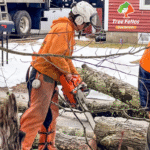In the fast-paced world of digital marketing, ensuring your content gets noticed by search engines is essential. One of the most important steps in this process is understanding how search engines index links. Proper link indexing is critical for visibility, as search engines need to crawl, discover, and store your web pages in their databases to rank them effectively. A link indexer is a tool that helps speed up this process by ensuring your links are recognized and properly indexed. In this article, we’ll delve into the factors that influence link indexing, how a link indexer works, and best practices to ensure your website’s links are indexed and ranked favorably by search engines.
What is Link Indexing?
Link indexing refers to the process by which search engines like Google, Bing, and others discover, crawl, and store URLs in their databases. This allows search engines to generate relevant search results when users enter queries. When a search engine’s crawler encounters a link on a web page, it follows that link to the destination, scans its content, and adds it to its index if the content is deemed relevant.
For a website to be visible in search results, search engines must index its links properly. Without effective indexing, even the most well-optimized pages might remain unnoticed.
Key Factors That Affect Link Indexing
Search engines use sophisticated algorithms to determine which links are indexed and how they are ranked. The following factors significantly impact link indexing:
- Link Structure
The structure of your links is critical for effective indexing. Search engines prefer URLs that are clean, concise, and descriptive. A well-structured URL helps crawlers understand the content of the linked page without much effort.
- Link Freshness
Regularly updating your site with fresh, relevant content helps maintain the crawlability of your links. Search engines tend to favor websites that add new content regularly, as this keeps them relevant in the ever-evolving digital landscape.
- Internal Linking
Internal links play a vital role in guiding search engines to discover new pages within your site. They act as bridges, allowing crawlers to easily navigate through the structure of your website. A well-planned internal linking strategy can ensure that all key pages are indexed and have a chance to rank.
- Backlinks
Backlinks from other reputable websites also help search engines identify your page’s importance. A higher number of quality backlinks generally signals to search engines that your content is valuable and trustworthy, which can improve your link indexing.
- Robots.txt and Noindex Tags
You can control which pages are crawled and indexed using the robots.txt file and “noindex” tags. This helps you avoid indexing pages you don’t want to show up in search results (such as duplicate content or private pages). Ensuring these settings are correctly configured is essential for maintaining a clean and optimized link structure.
How a Link Indexer Works
A link indexer is a tool that assists search engines in indexing URLs more efficiently. By utilizing a link indexer, webmasters can speed up the process of having their content crawled and indexed. While Google and other search engines usually take care of the indexing process automatically, a link indexer can submit links directly to search engines to increase the chances of faster indexing.
For websites with extensive or complex link structures, using a link indexer can help ensure that new or updated pages are included in search engine results sooner. The use of link indexers is especially valuable when launching new websites or pages that need to gain visibility quickly.
Best Practices for Link Indexing Optimization
To improve the effectiveness of your website’s link indexing, follow these best practices:
- Focus on High-Quality Content
Ensure that every page you link to is valuable, original, and informative. Search engines prioritize pages with high-quality content, so having a robust content strategy will help improve indexing.
- Optimize Your Site’s Loading Speed
Search engines favor websites that load quickly. A slow-loading site can hinder the ability of crawlers to index your pages effectively. Invest in optimizing your website’s performance to ensure a seamless experience for both users and search engines.
- Ensure Mobile-Friendliness
As mobile-first indexing becomes the standard, it’s critical that your website is mobile-friendly. Ensure that your website is fully responsive and that all links are accessible on mobile devices.
- Use Descriptive Anchor Text
When linking internally or externally, ensure the anchor text is descriptive and relevant to the content. This helps search engines understand the context of the link and makes it more likely that the link will be indexed appropriately.
- Submit a Sitemap
A sitemap is a file that provides search engines with a roadmap of your website’s structure. Submitting a sitemap to search engines can help ensure that all of your pages are crawled and indexed, even if they aren’t directly linked from other pages.
- Fix Broken Links
Broken links (404 errors) can impede the indexing of your pages. Regularly check for and fix any broken links to ensure that crawlers can smoothly navigate your website.
Search engines play an essential role in ensuring the visibility of websites in search results, and link indexing is a key part of this process. By understanding the factors that affect link indexing and following best practices, webmasters can ensure that their content is properly discovered and ranked by search engines.
Tools like link indexers can also help speed up the process, especially for newly published or updated pages. By focusing on quality content, maintaining a well-structured website, and optimizing your link strategy, you can improve your website’s chances of being indexed effectively, ultimately leading to better search engine performance.






